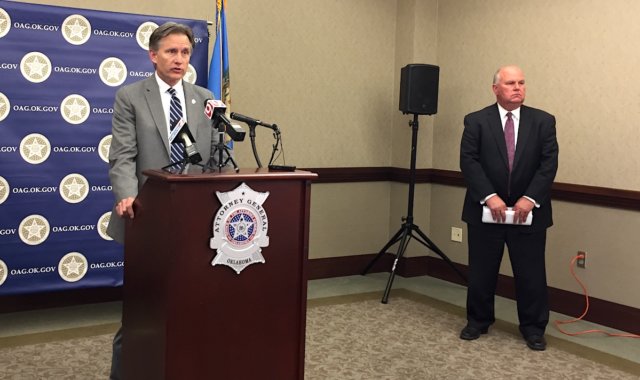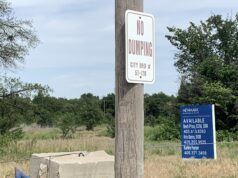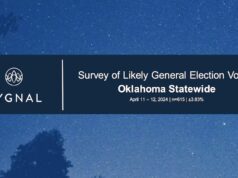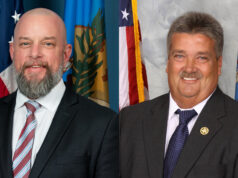
A multicounty grand jury has found no missing money and recommended no indictments for those involved with the Oklahoma State Department of Health financial snafu. But as Oklahoma Attorney General Mike Hunter explained the findings today, he lambasted the agency for “deceit, abuse, mismanagement and utter incompetence” that he said “is impossible to comprehend.”
“The agency was and is solvent. The $30 million supplemental appropriation was unnecessary and still sits untouched in an account at the Oklahoma Department of Health,” Hunter told reporters at his office during a press conference. “The agency had money all along to make payroll.”
That revelation alone is likely to shock lawmakers, bureaucrats and the public who watched as OSDH laid off nearly 200 employees and was the subject of the multicounty grand jury’s investigation, federal examinations and a special investigative committee of the Oklahoma House of Representatives.
“This was such a complicated mess that there was a decision made that it couldn’t possibly work and it was a disaster, but in fact, as complicated and messy as it was, it wasn’t an insolvency,” Hunter said.
Standing next to him, State Auditor and Inspector Gary Jones nodded.
“It was (a failure) at multiple locations,” Jones said. “It’s obvious that it was messed up for decades. (…) They created their own crisis, and it didn’t have to happen.”
Hunter said Department of Health leaders “concealed a slush fund allowing the department to spend without consequence” and that the Oklahoma State Board of Health “failed to provide adequate financial oversight.”
Lisa Hodges, an auditor within Jones’s office, said the “slush fund” had grown to as much as $40 million at one point, though Jones said the agency’s financial reserves would also occasionally crater down to as low as $2 million in total funds on hand.
‘We couldn’t find anything that we could prosecute’
Hunter said Thursday that while the scope of incompetence within the Department of Health was pernicious, the grand jury and investigators did not find any evidence of anyone benefiting personally from the agency’s financial disarray.
“Certainly laws were broken, but there weren’t criminal consequences to those laws,” Hunter said. “If there was criminal behavior here, we’d be prosecuting it. At the end of the day, we couldn’t find anything that we could prosecute.”
But Hunter declined to discuss what federal investigators may be thinking about the situation.
“While it’s good that there’s no missing money, it’s sad what the repercussions are,” Jones said.
Hunter said the worst of those repercussions was the reduction in force that eliminated 198 Department of Health positions and decreased services available to the public across the state.
Grand jury makes seven recommendations
In its report (embedded below), the multicounty grand jury offered seven “recommendations” to the Department of Health, the Board of Health, the governor and the Legislature:
- Return the $30 million appropriation to the Legislature for “the purpose of additional performance and investigative audits” at other state agencies.
- “The Department must move to the statewide financial system maintained by OMES and used by the vast majority of state agencies.”
- Improve the effectiveness of the Oklahoma State Board of Health in providing agency oversight, something the report believes will be improved by the Legislature’s recent change to board appointments.
- Amend Title 21 Section 341 of state statute to consider “the creation or possession of public dollars which are not reported to the Legislature or that are not designated for a particular purpose by a federal grand or state statute” as embezzlement of state property.
- Statutory requirement that all state agencies “annually publish to the public a balance sheet and statement of revenues, expenditures and changes in fund balances pursuant to the standards of the Governmental Accounting Standards Board (GASB).”
- Ensure that state employees — financial employees particularly — have “sufficient knowledge and training within the areas they work.”
- “The department must return to the federal budgeting system that correctly projects federal grant dollars.”
Background on Department of Health issue
Word spread publicly at the end of October 2017 that the Oklahoma State Department of Health was in dire financial straits, with $30 million in federal dollars supposedly unaccounted for and questions swirling about potential criminal activity from the agency’s upper management.
Then-Commissioner of Health Terry Cline resigned Oct. 30, with Preston Doerflinger named as acting-commissioner. Doerflinger stepped down Feb. 14 while facing criticism for a family situation amid a special House committee’s contentious investigation into what Gov. Mary Fallin’s office — and Doerflinger — knew about the OSDH troubles and when.
The Legislature ultimately provided supplemental funding to the agency to cover the holes in federal programming, with the condition that administrators cut the OSDH budget by an amount prescribed in statute. Hunter and Jones said Thursday that $30 million supplemental appropriation was ultimately unnecessary and should be dedicated to an oversight and auditing operation to examine other agencies.
Rep. Kevin Calvey (R-OKC), who served on the House investigative committee, issued a press release after Hunter and Jones’s announcement.
“The grand jury findings prove exactly what we conservatives in the Legislature have been saying all along: that the Health Department deliberately spent money on its own pet projects, what the grand jury called a ‘slush fund,’ rather than spending the money on core programs,” Calvey said. “Given the grand jury’s findings, I wouldn’t be surprised if at least one of the officials we cross-examined in the House Special Investigative Committee hearings last fall was guilty of making false statements under oath. I’m not referring to the whistleblowers. I urge the attorney general’s office to examine the record of those committee hearings to determine whether executive branch officials testified falsely to cover up gross misspending in state government.”
Currently, Hunter is running for a full term as attorney general, Jones is running for governor and Calvey is running for to become an Oklahoma County commissioner.
Read multicounty grand jury report and state audit
